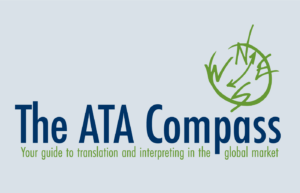Guide to Buying Translation Services, Part III: ATA Certification and Legal Considerations

ATA Certification
Respected Credential
ATA certification is one of the global translation industry’s most respected and recognized credentials. It is also the only widely recognized measure of competence for translators in the United States.
Professional Competence
ATA certification offers qualified and independent evidence that a translator possesses professional competence in a specific language pair. It recognizes translators who have the knowledge and skills necessary to provide quality translation services.
Earning Certification
To earn ATA certification, a translator must pass a rigorous proctored exam. The exam assesses the language skills needed to be a professional translator: comprehension of the source language text, translation techniques and written proficiency in the target language.
Credentialed Interpreters
The Credentialed Interpreter (CI) designation in ATA’s Language Services Directory acknowledges interpreters who are certified by certain ATA-approved entities in fields such as medical, legal, and conference interpreting.
Certified Languages
ATA certification is available in over 30 language pairs. While the number of language pairs changes over time, certification is not available for all possible language combinations.
Certification is not a requirement to offer translation services in the United States.
Not Just a One-time Test
To maintain ATA certification, a translator must fulfill ongoing continuing education requirements. All members of ATA are required to abide by the organization’s code of ethics.
Certified translators may use the designation “CT” after their name and can apply their seal to documents they have translated.
Legal Considerations
Language Requirements
Some entities are required by law to provide translated materials. Title VI of the Civil Rights Act of 1964 prohibits discrimination on the basis of national origin, which means that any program or activity that receives U.S. federal funding must provide services in a person’s native language.
Be Aware
You should consult an attorney to determine whether you are legally obligated to provide language services. In addition, you should be aware of laws or regulations related to translation or interpreting in any countries in which you do business.
Additional ATA Resources
This is the third article in a series of articles introducing the American Translators Association’s Guide to Buying Translations Services, which was created to help those in need of translation services find the best provider for their project and work efficiently with the chosen translation provider. For the full guide, click here.
About the Authors
Eve Bodeux is an ATA-certified French to English translator specialized in tech marketing, commercial communications, marketing research and official documents. She is the Secretary of the American Translators Association and serves on the ATA Public Relations Committee.
Jamie Hartz is an ATA-certified Spanish to English translator and transcriber specialized in legal and commercial translations. She currently serves as the Chair of the ATA Public Relations Committee.
Language Services Directory
Subscribe to The ATA Compass
Connect with The ATA Compass
Recent Posts
The ATA Compass
Want to reach more customers, grow your business, and improve your bottom line? The ATA Compass publishes articles and provides resources to show you how language professionals can help you…
Read MoreExploring Translation and Interpreting Services
Why Are Language Services Essential in an Internationalized World? In a world where communication knows no bounds, effective language services are paramount. ATA helps you find professional translators and interpreters…
Read MoreWhy You Should Use a Certified Translator or Interpreter
Choosing a Certified Professional is the Smart Choice A certified translator or interpreter ensures effective, accurate, and culturally sensitive communication that truly bridges the gap between languages and cultures. Accuracy…
Read MoreTranslator vs. Interpreter
Watch a Day in the Life of Translators and Interpreters See how translators and interpreters work in this short animated video. Translators do the writing Translators work with the written…
Read MoreFind a Translator or Interpreter Near You
Searching for a Nearby Translator or Interpreter? Whether you require accurate document translations, real-time interpreting for an event, or specialized industry expertise, finding the right professional near you has never…
Read MoreClient Assistance
Can I afford to hire a professional? You can’t afford NOT to. Poor translation and interpreting services can be disastrous for your business. See what’s at stake. Learn More What’s…
Read More






